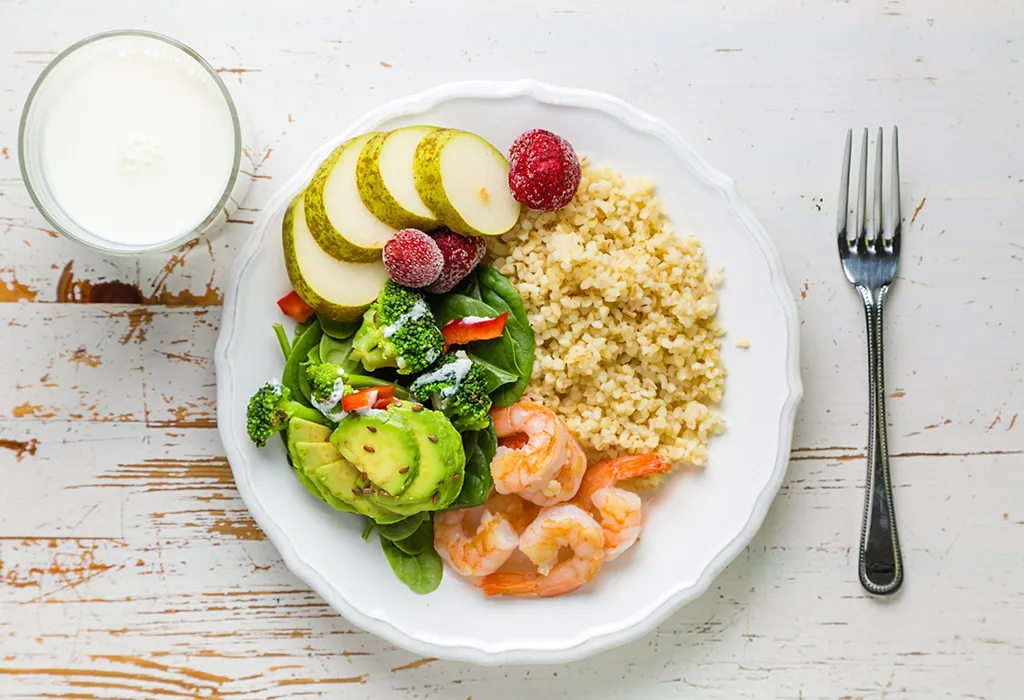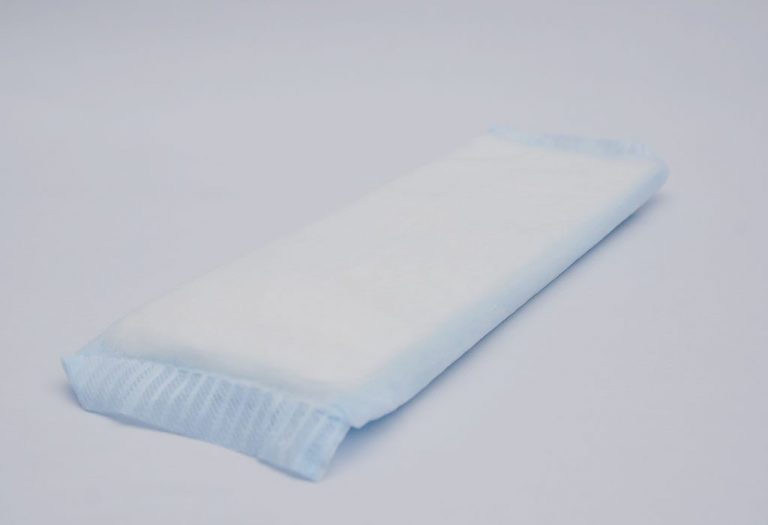Postnatal Diet – Foods You Should Eat and Avoid After Delivery

- Why Is It Important to Eat the Right Foods After Delivery?
- Foods You Can Eat
- Foods You Should Avoid After Delivery
- Postpartum Diet Plan
- Postnatal Diet Tips
- FAQs
Ensuring proper nutrition post-delivery is paramount for new mothers, particularly because they are breastfeeding. A balanced diet not only supports maternal recovery but also provides vital nutrients to the newborn. Prioritizing nutrient-dense foods such as fruits, vegetables, lean proteins, and whole grains can aid in replenishing the body’s reserves depleted during childbirth. Conversely, certain foods and beverages, like caffeine and highly processed snacks, might be best limited or avoided due to their potential effects on both maternal health and breast milk composition. Delve deeper into dietary recommendations for postpartum wellness that is the right diet after delivery. If you’re wondering about the foods you should and shouldn’t eat during the postpartum recovery period, read this article.
Why Is It Important to Eat the Right Foods After Delivery?
The right foods can help your body heal itself and regain strength and energy. Not only that, if you’re breastfeeding, you cannot neglect your diet. That’s because what you eat will pass to your baby through breast milk.
Foods You Can Eat
Following are the foods to eat after birth.
1. Whole-Grain Cereal
After a restless night, opting for whole grain cereals provides an ideal breakfast choice for the following morning. Many cold cereals on the market are enriched with essential vitamins and minerals, supporting your daily nutritional needs.
Oats stand out as a notable source of calcium, iron, proteins, and carbohydrates. Furthermore, their high fiber content aids in alleviating constipation (1). Crafting a straightforward oatmeal recipe with fruits, milk, and nuts offers a nutritious start to your day. Alternatively, consider variations like khichdi or oats upma for a wholesome breakfast option.
2. Green Vegetables
Green vegetables serve as an exceptional reservoir of essential vitamins and minerals. Additionally, they boast a low-calorie count and are teeming with heart-healthy antioxidants, aiding in shedding post-pregnancy weight (2). Varieties like spinach, broccoli, and Swiss chard are particularly rich in vitamin A, beneficial for both maternal and infant health. Incorporating more leafy greens, beans, along with seasonal vegetables such as pointed gourd (parwal), apple gourd (tinda), and lotus stem into your diet is highly encouraged.
3. Citrus Fruits
Citrus fruits such as oranges provide essential vitamin C, crucial for breastfeeding mothers. Whether consumed as whole fruit or juice, they contribute to your daily nutrient intake, along with fortified calcium drinks.
4. Lean Meat
Lean red meats provide valuable nutrients such as high-quality protein, iron, zinc, and vitamin B12, which can help combat the energy drain experienced during breastfeeding. Opting for lean cuts ensures lower saturated fat intake while still meeting your nutritional needs (3).
5. Low-Fat Dairy
Incorporating low-fat dairy products like milk, cheese, or yogurt into your breastfeeding diet is crucial (4). These foods are rich in calcium, protein, and B vitamins, which are essential for both your own recovery and your baby’s bone development through the absorption of calcium from breast milk. Aim for three servings of dairy per day to replenish lost calcium stores and support overall health.
6. Pulses
Pulses, a staple in balanced vegetarian diets, offer a wealth of protein, fiber, vitamins, and minerals. Whether it’s green or red grams, preparing them by boiling and seasoning ensures digestibility and taste, while also preventing excess fat accumulation.
7. Legumes
Dark-colored legumes like kidney beans and black beans serve as excellent sources of non-animal protein, aiding in energy replenishment during breastfeeding. Ideal for vegetarian and vegan mothers, these legumes provide essential nutrients crucial for postpartum recovery.
8. Blueberries
Blueberries offer a nutrient-rich option for post-pregnancy nutrition, supplying vitamins, minerals, and healthy carbs to boost energy levels and meet daily requirements effectively.
9. Salmon
Salmon stands as a nutritional powerhouse for new mothers, offering DHA for infant nervous system development and mood elevation (5). Adhering to FDA guidelines ensures safe consumption to avoid mercury exposure.
10. Whole Wheat Bread
Folic acid plays a crucial role in the initial phases of fetal development. Infants receive this essential nutrient through breastfeeding. Fortified whole-grain bread and pasta serve as beneficial choices to enhance your daily intake of iron, fiber, and folic acid.
11. Water
Breastfeeding increases the risk of dehydration, necessitating proper hydration to sustain milk production and energy levels. While juice and milk offer some hydration, water remains the most filling and effective fluid. It’s essential to drink ample water. Additionally, limit caffeinated beverages, as they may disrupt sleep and cause irritability in the baby.
12. Sesame Seeds
Sesame seeds are rich in iron, calcium, magnesium, copper, and phosphorus, making them a valuable addition to a postpartum diet. These minerals aid in replenishing essential nutrients in the body and contribute to bowel regularity. Incorporate sesame seeds into various dishes such as chutneys, curries, and desserts for their beneficial effects.
13. Avocados
Avocados are rich in essential nutrients crucial for post-pregnancy nutrition. Packed with antioxidants, folate, potassium, carotenoids, and fiber, they offer a multitude of health benefits (6). With a low glycemic index and devoid of saturated fats or empty calories, avocados serve as an ideal addition to your postpartum meal plan. Incorporate them into your diet by enjoying them on toast, in salads, blended into smoothies, or as a delicious dip.
14. Sweet Potatoes
Sweet potatoes serve as a nutritious source of vitamin A, essential for bone growth, vision, and immune function. Additionally, they offer a significant amount of potassium. Incorporating sweet potatoes into your post-pregnancy diet can provide numerous advantages. These versatile tubers are commonly used in salads, soups, stews, and even cupcakes, making them a versatile and delicious addition to your meals.
15. Fenugreek Seeds
Fenugreek seeds are packed with calcium, iron, vitamins, and minerals, making them a valuable component of post-pregnancy nutrition. While evidence supporting their effectiveness in relieving joint and back pains is limited, you can easily incorporate them into your daily meals. Sprinkle a few seeds into your dishes or dry fry and powder them to mix into roti, vegetables, or meats. Additionally, fenugreek tea is a popular beverage choice among nursing mothers.
16. Almonds
Almonds are an excellent addition to your post-pregnancy diet, offering a rich array of nutrients including carbohydrates, fiber, vitamins B12 and E, magnesium, manganese, copper, zinc, calcium, and potassium. These nutrients contribute to post-delivery recovery. Enjoy them as a snack on their own, or incorporate them into various dishes by adding them to milk or other foods.
17. Finger Millets
Finger millets serve as an exceptional source of iron and calcium, aiding in the restoration of strength depleted during childbirth. For those with dairy allergies, finger millets present an optimal alternative. They can be utilized to prepare various dishes such as ragi malt, roti, idli, dosa, and halwa, offering versatility in their consumption.
18. Carom Seeds
Carom seeds are recognized for their ability to enhance milk production and facilitate uterine contractions postpartum. Additionally, they alleviate symptoms of indigestion and gas due to their antibacterial, antifungal, antioxidant, and antiseptic properties. Incorporate carom seeds into your meals as a seasoning or prepare carom seed-infused water for consumption.
19. Turmeric
Turmeric is packed with essential vitamins and minerals, including vitamins B6 and C, potassium, manganese, magnesium, and fiber. Its anti-inflammatory properties make it particularly useful in aiding the healing process of post-pregnancy wounds and stomach disorders. Enjoy it by adding half a teaspoon to a glass of warm milk before bedtime.
20. Eggs
Eggs are a notable protein source for post-pregnancy nutrition. Whether enjoyed as an egg scramble for breakfast, a hard-boiled egg in a lunch salad, or an omelet for dinner, they provide essential nutrients. Opt for DHA-fortified eggs to enhance the levels of essential fatty acids in your breast milk.
21. Dry Ginger Powder
Dry ginger powder is another beneficial addition to your post-pregnancy diet, boasting vitamins B6 and E, magnesium, iron, potassium, manganese, and selenium. Renowned for its anti-inflammatory properties, it can be easily incorporated into your meals and chutneys with just a pinch.
Foods You Should Avoid After Delivery
Here’s a list of food to avoid after giving birth, especially while breastfeeding:
1. Garlic
The smell and taste of garlic may get transferred to breast milk. Some babies don’t like how garlic smells and tastes and so, may refuse to feed.
2. Coffee
Caffeine can make your baby irritable and lead to sleeplessness. However, it is not harmful when consumed in moderation.
3. Alcohol
A lot of contrasting opinions exist about alcohol consumption during breastfeeding. However, it has been proven that drinking alcohol can lead to drowsiness, weakness, and unusual weight gain in the baby. Alcohol can adversely affect the supply of breast milk.
4. Peanuts
Some babies are allergic to peanuts. It’s best to avoid peanuts during breastfeeding.
5. Oily & Gassy Foods
As a new mom, you should stay away from oily foods that are high in calories. The same goes for gassy foods like cereals that are ‘heavy to digest’.
6. Carbonated Drinks
Stay away from fizzy drinks for a while after delivery.
7. Fish With High Mercury Content
Certain types of fish like swordfish, shark, king mackerel and tilefish contain mercury that can hamper your baby’s brain development.
Postpartum Diet Plan
After giving birth, new mothers must focus on their nutrition to support their recovery and breastfeeding journey. A well-balanced postpartum diet can provide essential nutrients for healing, energy, and milk production. However, certain foods should be consumed in moderation or avoided altogether to ensure optimal health for both mother and baby. Let’s explore a comprehensive postpartum diet plan.
| Breakfast | Snack | Lunch | Snack | Dinner | |
| Sunday | Fruit slices, sandwich |
Whole grain crackers topped with peanut butter | Wrap filled with vegetarian or non-vegetarian protein | Vegetables served with hummus | Chicken salad with shredded chicken |
| Monday | Cereal accompanied by skim milk, fruit | Trail mix | Vegetable-based pasta | Spread peanut butter on graham crackers | Shrimp salad alongside a parfait |
| Tuesday | Sandwich made with banana and peanut butter | Apple paired with string cheese | Salad featuring shredded chicken | Vegetables served with hummus | Rice combined with vegetables |
| Wednesday | Cereal accompanied by skim milk, fruit | Refreshing fruit smoothie | Wrap filled with assorted ingredients | A mix of nuts, seeds, and dried fruits | Frozen entrees |
| Thursday | Toast paired with a hard-boiled egg and grapefruit | Apple served with string cheese | Veggie-infused pasta | Refreshing fruit smoothie | Chicken salad made with shredded chicken |
| Friday | Cereal with skim milk and fresh fruit | Trail mix | Bread served with soup and a side of fruit cup | Graham crackers spread with peanut butter | Wrap filled with assorted ingredients |
| Saturday | Peanut butter banana sandwich | A blended fruit smoothie | Convenient frozen meals | Vegetables served with hummus | Vegetable rice dish |
Postnatal Diet Tips
It is a fact that the quality of breast milk does not change irrespective of what you eat. But if you are not eating nutritious foods, then your body will draw on your reserves of these nutrients to make up for the deficit.

Here are a few tips to eat healthily after delivery:
- Consume omega-3 fatty acids. These are found in fish and can help a baby’s brain and eye development. But restrict yourself to two servings of fish per week.
- Increase the amount of protein in your diet. Protein makes you feel full for many hours and also regulates blood sugar.
- Snack regularly on healthy options like nuts and fruit to prevent binge eating.
- Prepare large portions of healthy food and freeze. When you’re too tired to cook, just heat it and have it!
- When your stomach is rumbling, you may think it’s hunger. But it may be thirst. Drink a glass of water. If it’s thirst, you won’t feel hungry after gulping down a glass of water.
- Don’t do crash dieting in order to lose weight after delivery. Losing weight too quickly can affect the supply of breast milk.
- Cookies, chips and doughnuts are okay once in a while, but they shouldn’t replace healthy foods!
- If you don’t consume meat or dairy products, you may have to take a vitamin B12 supplement. Ask your nutritionist regarding the same.
FAQs
1. Is it safe to eat desi ghee after c-section delivery?
Yes, consuming desi ghee after a C-section delivery is generally safe and even beneficial due to its nutritious properties. However, moderation is key, and it’s advisable to consult with a healthcare professional for personalized advice.
2. What are the advantages of consuming panjiri after delivery?
Panjiri is a nutritious traditional Indian food often consumed after delivery. It’s rich in essential nutrients like proteins, vitamins, and minerals, which can aid in postpartum recovery, boost energy levels, and support breastfeeding.
3. When can you start a diet after giving birth?
The timing for starting a diet after giving birth varies for each individual and depends on factors such as delivery method, overall health, and breastfeeding status. Generally, it’s recommended to focus on a healthy, balanced diet rather than strict dieting immediately after delivery. Consultation with a healthcare provider is advisable to determine the appropriate time to start a diet plan.
Every new mom wonders about after pregnancy what to eat. Besides eating a healthy and nutritious diet, it is important to come up with an exercise regimen that suits your pace. This will also ensure that even if you do not lose all your pregnancy weight in a jiffy, you will certainly not gain any excess weight.
References/Resources:
1. Whole grains: Hearty options for a healthy diet; Mayo Clinic; https://www.mayoclinic.org/healthy-lifestyle/nutrition-and-healthy-eating/in-depth/whole-grains/art-20047826
2. What to eat before, during and after pregnancy; UNICEF; https://www.unicef.org/rosa/stories/what-eat-during-and-after-pregnancy
3. Reynolds. L; Meats as part of a healthy diet of nutrient-dense foods during pregnancy and lactation; American Journal of Obstetrics & Gynecology; https://www.ajog.org/article/S0002-9378(22)00192-2/fulltext; March 2022
4. Calcium; Nemours Kids Health; https://kidshealth.org/en/parents/calcium.html
5. Jeffery. F, David. G, David. C, Coreen. H, et al.; Quantitative Analysis of the Benefits and Risks of Consuming Farmed and Wild Salmon (The Journal of Nutrition); Science Direct; https://www.sciencedirect.com/science/article/pii/S0022316622104773; November 2005
6. Comerford. K, Ayoob. K, Murray. R, Atkinson. S; The Role of Avocados in Maternal Diets during the Periconceptional Period, Pregnancy, and Lactation (Nutrients); National Library of Medicine; https://www.ncbi.nlm.nih.gov/pmc/articles/PMC4882725/; May 2016
7. Jeong. G, Park. S, Lee. Y, Ko. S, et al.; Maternal food restrictions during breastfeeding (Korean Journal of Pediatrics); National Library of Medicine; https://www.ncbi.nlm.nih.gov/pmc/articles/PMC5383635/; March 2017
Also Read:
Postnatal Infections
Postnatal Depression
Postpartum Vitamins for Breastfeeding Mom
Postpartum Complications and Solutions
Was This Article Helpful?
Parenting is a huge responsibility, for you as a caregiver, but also for us as a parenting content platform. We understand that and take our responsibility of creating credible content seriously. FirstCry Parenting articles are written and published only after extensive research using factually sound references to deliver quality content that is accurate, validated by experts, and completely reliable. To understand how we go about creating content that is credible, read our editorial policy here.




































